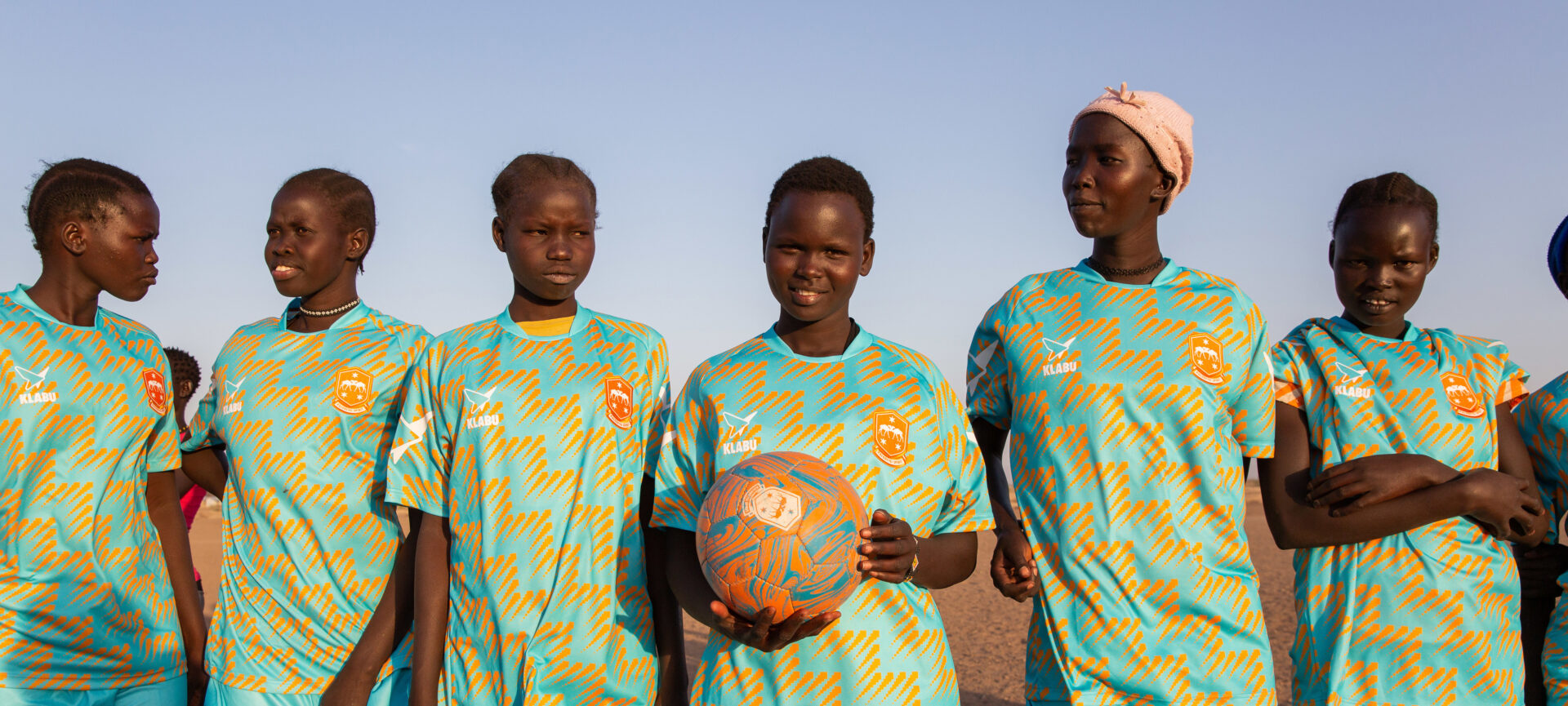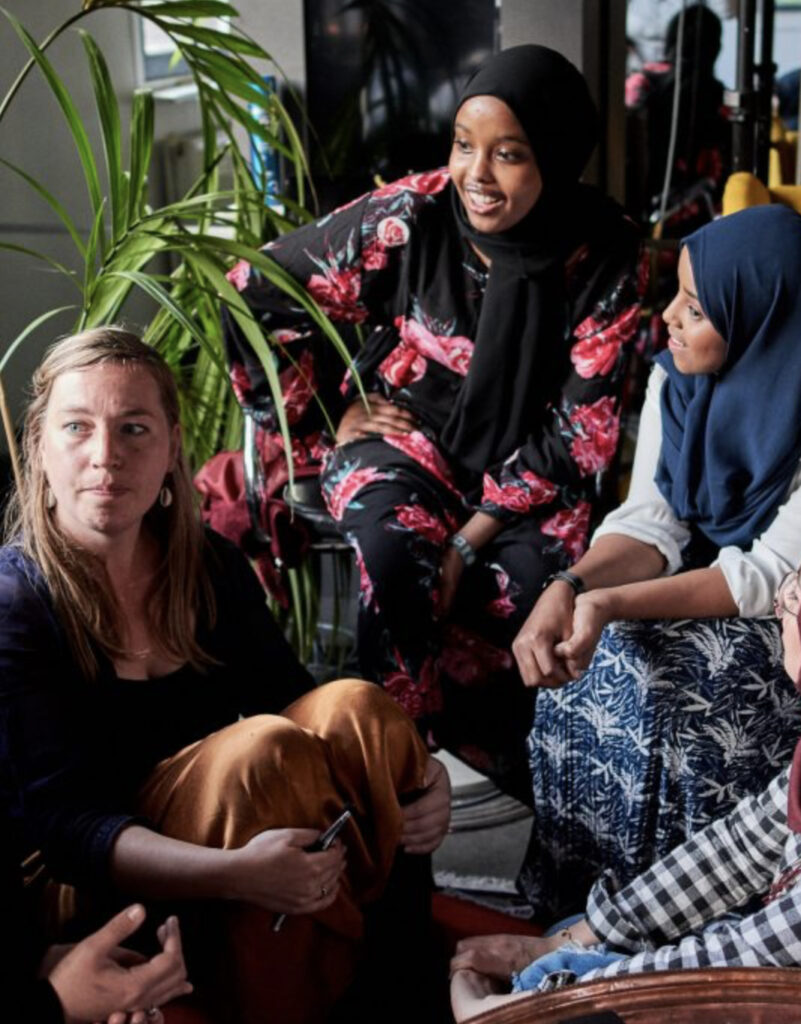SDG meetup: Inclusion
The 11th edition of our monthly SDG Meetup, which we developed in collaboration with SDG House and C-Change, focused on the topic of inclusion and three Sustainable Development Goals (SDGs) closely related to this topic.
Impact Hub’s mission is to support entrepreneurial solutions to societal issues. Our inclusion work takes our mission one step further – to ensure that these solutions have a positive impact for all. In our Inclusion ecosystem, various related topics are part of the conversation, such as immigration, (newcomer) integration, discrimination, LGBTQ+ rights, gender equality, disability, and poverty.
In this special SDG Meetup, we explored inclusion from the same plural perspective, through the lenses of SDG 5: Gender Equality, SDG 10: Reduce Inequality and SDG 11: Sustainable Cities and Communities. Keep reading to find out how Klabu, WelcomeApp and Meer Vrouwen in de Politiek (Dutch for ‘More Women in Politics’) contribute to achieving one or more of these SDGs.

Founder Jan van Hövell began by sharing how he stepped into the Impact Hub in 2017 with an idea to change the world. During our Business Model Challenge, which he won, Jan refined his idea into a foundation with a business model: selling sustainable, high-quality sportswear to build sports clubs in refugee camps and settlements.
Jan was inspired to leverage sports for inclusion after bonding with refugees through playing football during his UNHCR internship in Uganda. Another key moment was the impact that the historic Refugee Olympic Team at Rio 2016 had on the refugee community. After a career in law, Jan decided to focus on his passion for sports as a means to bring people together.
Kalobeyei Spirit, the first KLABU (‘club’ in Swahili) is located in the Kalobeyei settlement in the north of Kenya. 80 per cent of the refugees who live there are younger than 18 and find it hard to access education and employment. To prevent frustration from setting in and potential from being wasted, KLABU gives young people an outlet for their talent while also bringing refugees and locals together.
KLABU’s big ambition is to expand the club model beyond refugee settlements, to large cities, slums, and favelas and thus to contribute to ‘the social, political and economic inclusion of all’ (target 2 of SDG 10). In the meantime, the foundation contributing to the reduction of inequality through a simple approach: football teams in the Netherlands and Kenya are wearing the same sportswear and telling the same story of connection and friendship.

Welcome App | becoming the Facebook of newcomer integration
Julius Weisse, the founder of Welcome App, also connected to the refugee cause through football during a 2015 internship. As more and more newcomers were arriving on European shores, Julius and his family went to the Greek Island of Lesbos to help. Emboldened and inspired by this life-changing experience, Julius came back to the Netherlands keen to focus on the integration of newcomers. He found an emergency shelter where 275 Syrian families lived and found out that the Dutch system is working with newcomers using an outdated model.
In this old model, the responsibility for integration lies solely with the refugees: newcomers must learn the language, understand the culture, take the exams and so on. Julius started asking himself: ‘But what is the responsibility of local organisations and companies?’ He decided to make a change by making newcomers feel at home through WelcomeApp, an interactive online platform that encourages locals and newcomers to connect socially and professionally, online and offline.
Welcome App has a dual focus. In terms of impact on the individual, the platform aims to empower newcomers and give them access to a bigger network and to job opportunities. In terms of systemic change, Welcome App partners Open Embassy are working to change policy to actually fit the needs and challenges of refugees. To support policy development, the app will get an interpreter function for newcomers who cannot (yet) communicate in Dutch or English.
With 4,000 locals and newcomers currently using the platform and a growing number of companies joining, too, Welcome App wants to keep this momentum going. Future plans include attracting more organisations that want to promote their integration initiatives, programs and events, such as Refugee Talent Hub. In the words of Julius, the ultimate goal is to turn Welcome App into “the Facebook for integration in Europe”.
Co-creation session with Meer Vrouwen in the Politiek
As is common in our SDG Meetups, we concluded the evening with co-creation session, for which we welcomed special guest and Meer Vrouwen in de Politiek (MVP) founder Marie-Anne van Reijen. MVP regularly organises networking meetings, introductory courses on politics, and workshops on negotiating and debating. It also provides coaching and guidance to women who want to become politically active and helps them make a realistic plan to achieve their goals, as well as giving them the confidence to put topics on the political agenda.
The reason why MVP performs this work is that, for real gender equality to happen, women must account for 50 per cent of politicians on all levels of government; equal representation in politics will be conducive to women exerting influence on all policy areas and levels of government ranging from a city council to the EU Commission.
Marie-Anne posed the following question to the audience: What should be MVP in de Politiek’s EU expansion strategy? As no country in the EU has gender parity in their national governments, Meer Vrouwen’s approach could prove beneficial across Europe. The audience split off into smaller groups for a brainstorm around the potential building blocks of the EU expansion strategy and covered topics such as communication, strategic partnerships and fundraising.
In terms of strategic partnerships, audience members suggested enlisting established female politicians and CEOs to serve as role models for women who want to go into politics. Other valuable partners would be local initiatives focused on women’s rights and advancement. Meanwhile, fundraising ideas ranged from crowdfunding while asking brands to give out products to individuals who make donations to encouraging citizens – where applicable – to redirect a percentage of one’s income towards MVP.
Marie-Anne was pleased with the thoughtful contributions of the audience and is working on a summary of the advice she received. Stay tuned!